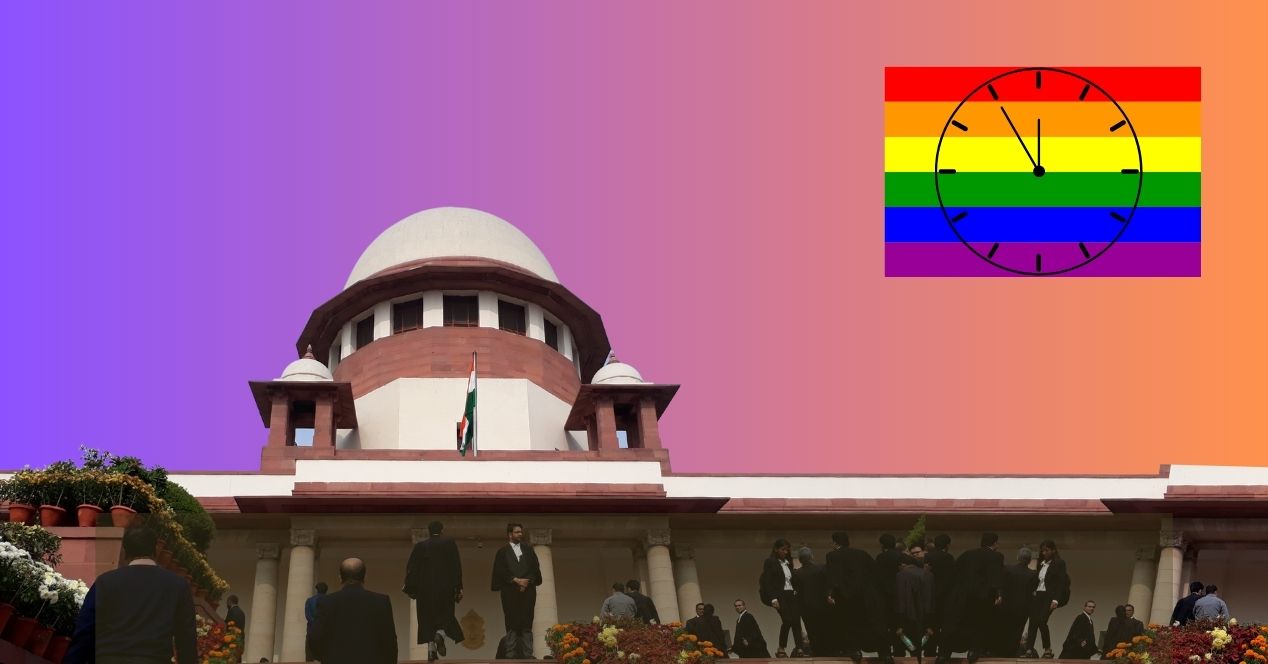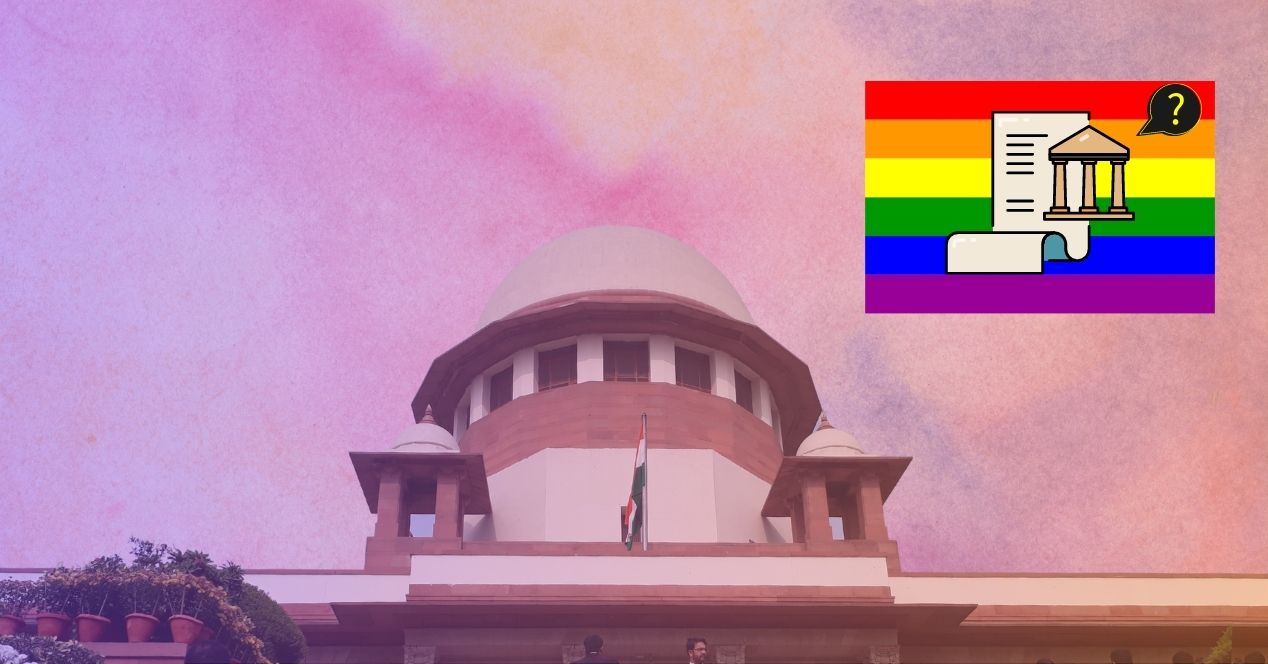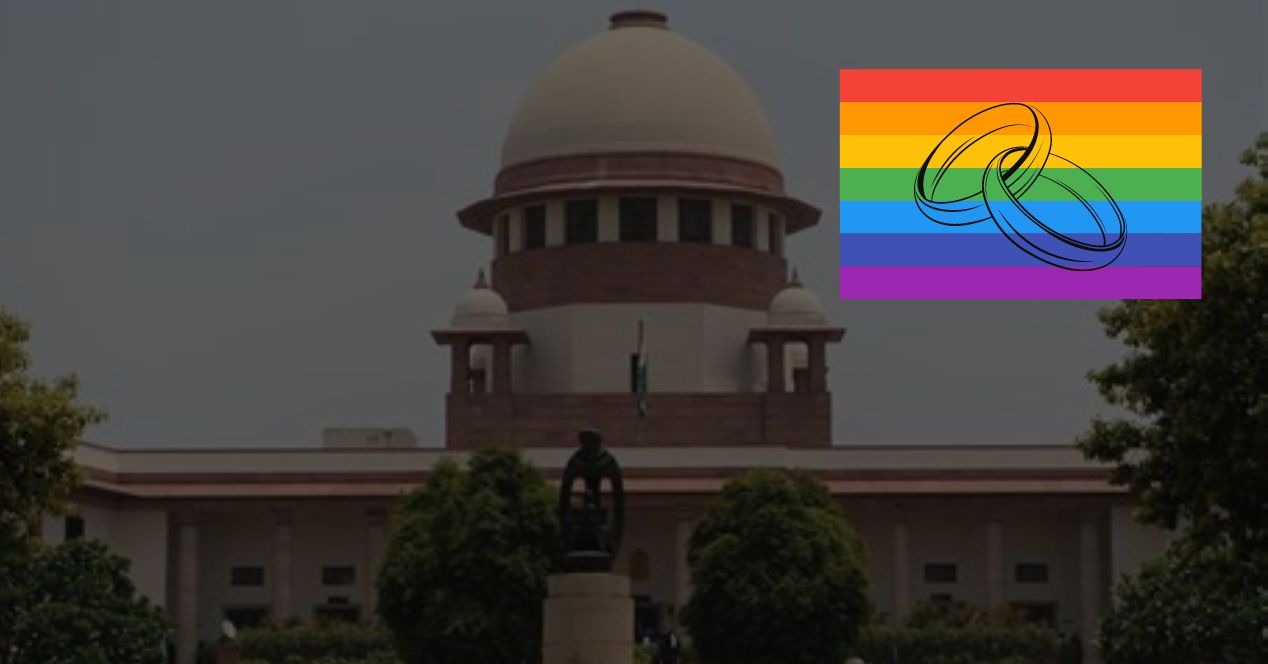Analysis
Rights of Marriage or the Right to Marry?
As the focus of the Marriage Equality hearings shifts to the ancillary rights of marriage, SCO examines the way forward.

The hearings in the marriage equality challenge took an interesting turn this week. Solicitor General Tushar Mehta informed the Supreme Court that the Union is open to exploring administrative changes to provide non-heterosexual couples ancillary benefits of marriage. He stated that the Union would form a committee headed by the Cabinet Secretary.
The petitioners have argued that marriage is a gateway to other important rights. These rights included fundamental rights such as the right to family via adoption or choosing a partner. They also included basic social rights such as having joint bank accounts, and the ability to nominate one’s partner in the insurance and medical policies. Therefore, LGBTQIA+ marriages must be recognised under the Special Marriage Act, 1954 (SMA) as a first step in the fight for marriage equality.
Responding to this, Mr. Mehta stated that the Union was not opposed to granting these benefits to LGBTQIA+ persons. However, the SMA was not the appropriate route. The case entails recognising marriages for a supposedly ‘undefined’ class of individuals on the gender spectrum. Therefore, it was a complex endeavour that only Parliament could undertake. Further, administrative changes would be sufficient to provide access to welfare benefits.
What are the possible outcomes at this juncture? Let’s explore.
Outcome 1: Special Marriage Act Recognises Marriage Between LGBTQI+ Persons
If the SC decides to read down the SMA to recognise non-heterosexual marriages, significant legislative amendments must follow in the SMA and various ancillary laws including family laws and social welfare laws.
First, the provisions of the SMA must be rephrased to include neutral terms such as ‘person’ and ‘spouses’ instead of phrases such as ‘man’, ‘woman’, ‘husband’ and ‘wife’. However, the Union has previously argued that this could not be done. The drafters of the SMA only intended for it to apply to heterosexual marriages.
Second, other statutes that interact with the SMA must be adequately amended to include non-heterosexual couples in their purview. According to the SG, changes must be made to the Indian Succession Act, 1925, the Hindu Marriage Act, 1955, the Indian Penal Code, 1860 and nearly 160 other statutes. All of these have gendered terms that only included ‘conventionally biological’ males and females.
Third, social welfare policies such as banking regulations, gratuity rules and pension schemes must be tweaked to enable non-heterosexual couples to nominate their spouses. This will require changes at an administrative level.
Outcome 2: Administrative Changes to Give LGBTQI+ Persons Benefits, Without the Right to Marry
As Mr. Mehta suggested on May 3rd, the focus may shift to ensuring that LGBTQIA+ couples are granted rights surrounding marriage, through specific changes made in various social welfare provisions. Mr. Mehta explained, as an example, that nominations in provident funds could include a family member ‘or anyone else’, thus allowing individuals to nominate their partners. The SG’s focus on seemingly simple solutions to the complex issues surrounding the right to marry may effectively allow the bouquet of rights as presented by Sr. Adv. Dr. Maneka Guruswamy to be recognised.
The petitioners quickly raised concerns that this shift in focus ‘misses the point’. Various petitions have discussed how the recognition of marriage is crucial for LGBTQIA+ persons for both practical, as well as social and personal reasons. Beyond the legal benefits to the recognition of marriage, they have argued that it forms a key part of one’s identity, promotes social acceptance, elimination of stigma, and an elevated social status for this widely marginalised group.
The Bench advised the petitioners to not opt for an ‘all or nothing’ approach. Justice Bhat stated that every step in achieving these rights is crucial, and administrative changes will be beneficial regardless of the SC’s decision.
All parties to the case are expected to meet over the weekend to determine what changes the Union may explore. More information will follow in the next hearing scheduled on May 9th, 2023.




